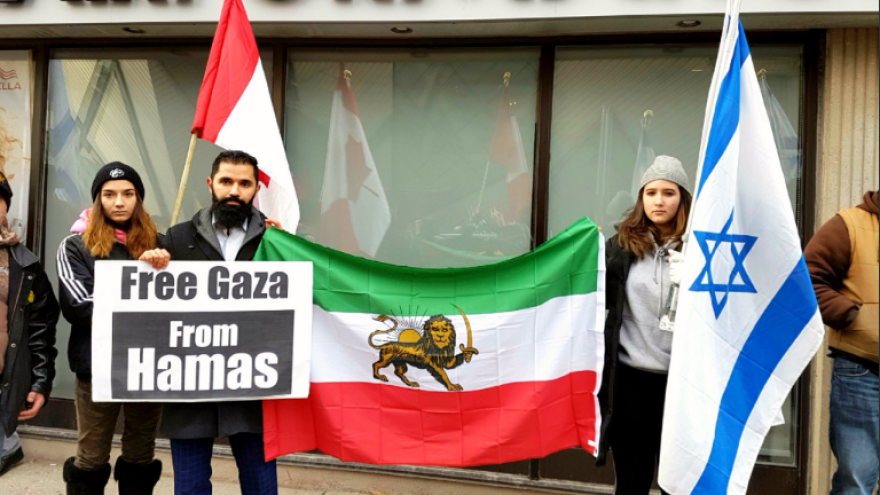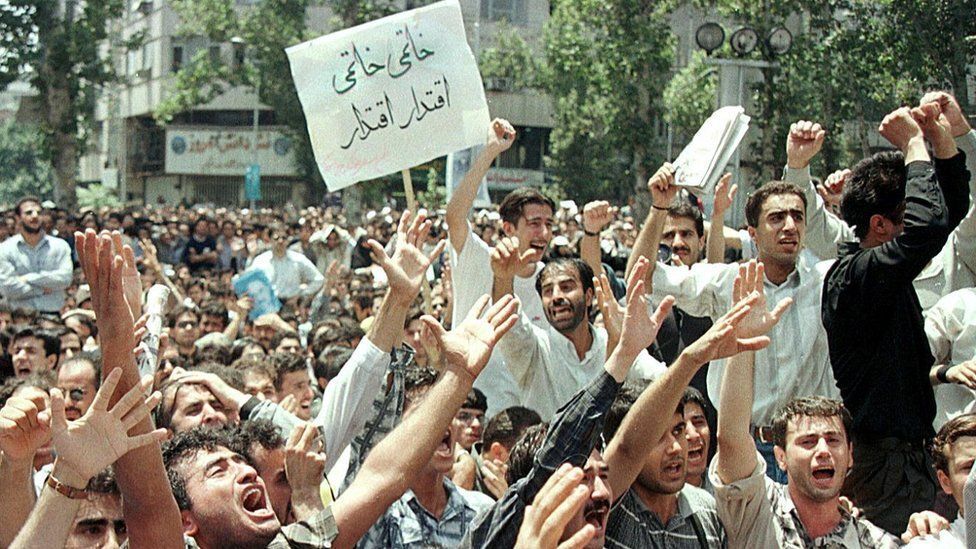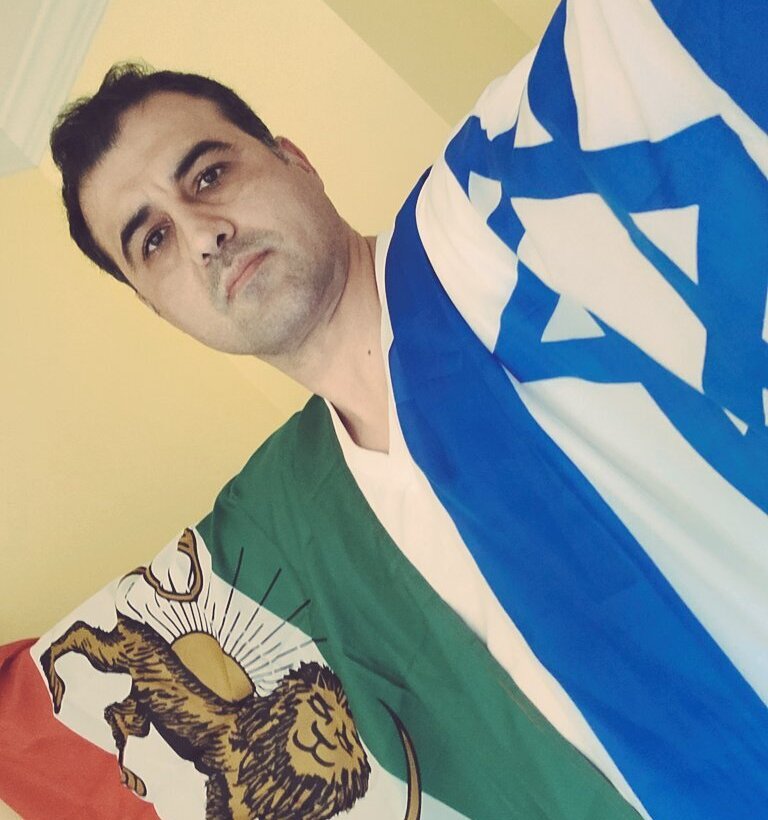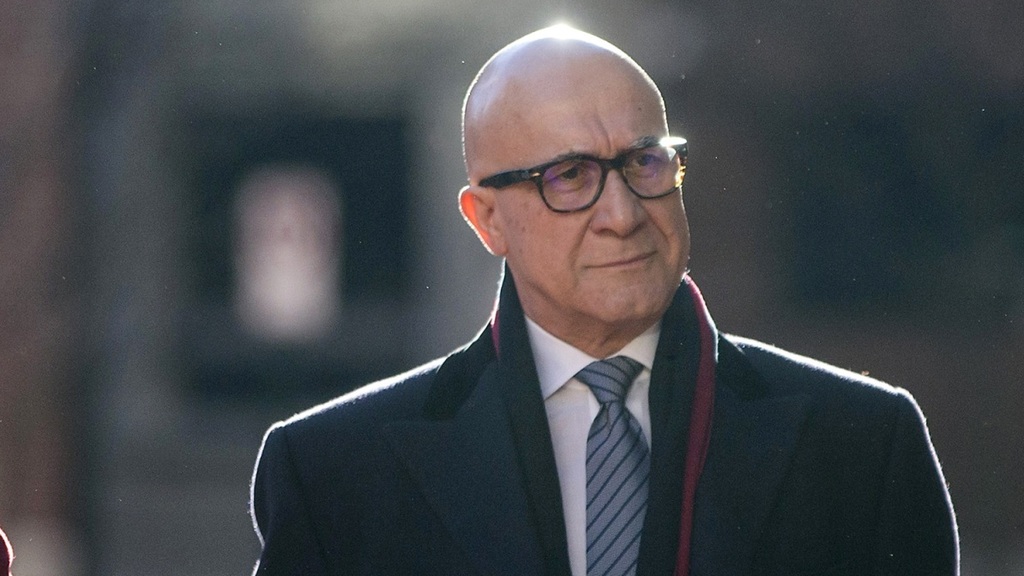Getting your Trinity Audio player ready...
On Monday, a group of Iranians will walk through the streets of Tel Aviv.
The thought conjures up the worst security nightmares. This, though, is a mission of peace. A delegation of Iranian expatriates, including former political prisoners, is traveling from the U.S. to Israel for a four-day solidarity trip in an attempt to build bridges between the people of Iran and Israel. The Israeli government recently approved the trip.
In the wake of the Abraham Accords — a series of normalization and cooperative agreements between Israel and Arab and Muslim-majority nations in the Middle East and Africa — a group of former U.S. government officials have presented the idea of the Cyrus Accords, whose goal is to rekindle the historic ties between Iran and Israel amid the Islamic Republic regime’s ongoing calls for Israel’s destruction and its anti-Semitic rhetoric.
“After the revolution in 1979, which I call the Iranian people’s suicide, the Iranian regime tried to change everything, including history," said Ahmad Batebi, an Iranian-born dissident.
"They destroyed all history’s sources and they try to write again the history they want. And they gave our generation a lot of wrong information about the history of the Middle East, Israel and Palestine," added Batebi, who became the face of the 1999 Iranian student protests and was subsequently jailed and tortured. He was smuggled out of Iran while on medical leave from prison and granted asylum by the U.S. government.
“So, after three decades, when I left the country, I had this chance to read other sources, which contained truth, and right now I think those people who live in Iran and don’t have access to independent sources should know the history of the Middle East, including Israel."
"We have to open the windows to the two nations. They have to talk to each other directly. So, right now I think it’s a good opportunity. We will go there and talk to NGOs [nongovernmental organizations]."
"Talk to governments. Talk to activists in Israel to find solutions and they can ask all those questions that they have, but, unfortunately, can’t find the answers for,” said Batebi.
Some of those about to travel to Israel are expressing support for the Israeli government’s approach to Iran’s nuclear activities, rather than that of the current U.S. government.
“Unfortunately, the U.S. government tried this [nuclear] policy before during the Obama administration. They gave a lot of benefits to the Iranian regime. They sent millions in cash. But what happened after that? The people couldn’t use that money, all those benefits. All that money and opportunities are for the Iranian regime, the IRGC [Iranian Revolutionary Guard Corps] and their proxy forces in Syria, Lebanon and Iraq,” said Batebi.
“So, I can say, as an Iranian who was born in Iran and knows that nation, that government, that culture, those policies — you cannot trust the Iranian regime. They have a mission, they have ideology. And the mission is exporting their values, their Islamic revolution to other countries. They don’t care about your [nuclear] deal, the commitment. They don’t care. Diplomacy – they don’t care about anything."
"They just need the opportunity to make their bomb. We hope the Israeli government understands the nature of this regime and they continue their policy. They have to put pressure on the U.S. government, they have to use the Jewish lobby in the United States to put pressure on the U.S. government and stop the nuclear deal,” he said.
In fact, Iran’s exiled Prince Reza Pahlavi held discussions last week with an umbrella organization of 50 Jewish American organizations, asking them to exert more pressure on the Iranian regime and show more support for Iranian protesters amid concerns over U.S. President Joe Biden’s declared intent to return to the 2015 nuclear agreement signed by the two countries and other parties, lifting punishing sanctions on Iran in the process.
Prince Reza Pahlavi’s father, Mohammad Reza Pahlavi, was the last Shah of Iran before being overthrown in 1979 in the Islamic Revolution. The Shah was a close Western ally.
the Foreign Ministry's Digital Diplomacy department, which invests in Persian and Arabic-language social media accounts, is expected to amplify the messages of the delegation to its Iranian and Gulf audiences.
8 View gallery


Shah Mohammad Reza Pahlavi visiting Washington, 1975
(Photo: White House Photographic Office)
“We want to go to Israel to send this message: We the people do not have any problem with the Israeli nation and we can be friends. There is not any reason we fight each other. All these issues are Iranian regime issues with Israel and you have to separate the nation and the government,” said Batebi.
“I strongly believe talking together — directly speaking within our two nations — can be a big help for starting a new relationship between us. We have internet, social media, we have other media. But, before that, we have to believe each other and we have to trust each other and want to talk to each other. I strongly believe, though, that social media can help serve as a bridge between our two nations,” he said.
The mission is being organized by the Institute for Voices of Liberty, which bills itself as a nonprofit, educational public policy institute “dedicated to reflecting the aspirations of the people of Iran in their quest for freedom, pluralism, human rights and democracy,” seeking to educate Western audiences about the realities of the struggles of the Iranian people.
Most members of the delegation — a mix of Iranian Jews and non-Jews — will be traveling to Israel for the first time. The itinerary includes meetings with Israelis of divergent backgrounds and religions, stops in Jerusalem’s Muslim and Christian Quarters in the Old City and the Yad Vashem Holocaust museum, along with a visit to a Druze village in the country’s north.
The mission will also make stops in Jerusalem, Tel Aviv and locations along the Gazan, Lebanese and Syrian borders, and is set to include meetings with government officials, as well as several former senior U.S. government officials.
These include former Deputy National Security Advisor Victoria Coates, Tehran-born former State Department Deputy Special Envoy to Monitor and Combat Antisemitism Ellie Cohanim, former Senior Advisor to the U.S. Special Representative for Iran Len Khodorkovsky, and former National Security Council Senior Director for Strategic Assessments Adam Lovinger.
“I talked to the delegates and we asked them a question," explained Bijan Kian, a Tehran-born former U.S. government official.
These included questions like: Why do you want to go on this mission? What is your personal objective? And most of them say they want to go and deliver a message that religion is not separating us. That everyone can keep their own religion and respect the beliefs of others," added Kian.
“The youth in Iran are talented — they can do a lot of things. They’re capable, they’re educated, but their hands are tied because their government thinks nothing of them and their future. So, why can’t we see the Israelis get together with the Iranian youth and solve problems?” said Kian.
“Medicine, telecommunications, dilapidated infrastructure, engineering, water issues — look at them… the ineptitude of the Islamic Republic government. It’s not a secret to anyone and Israelis can help the Iranians build a better future to get there. And Iranian youth realize that," Kian added.
"They understand that. They would like to look to a future where they work closely with their counterparts in Israel. And, you know, there’s no shortage of expressions of love. I think the government of the Islamic Republic lost the battle a long time ago."
"Their cries of ‘death to Israel’ went nowhere,” said Kian, alluding to social media messages emanating from Iran and video taken last year at Tehran’s Shahid Beheshti University campus, where students were walking over U.S. and Israeli flags — not stepping on them as designed — in an apparent show of defiance against the Iranian government.
8 View gallery
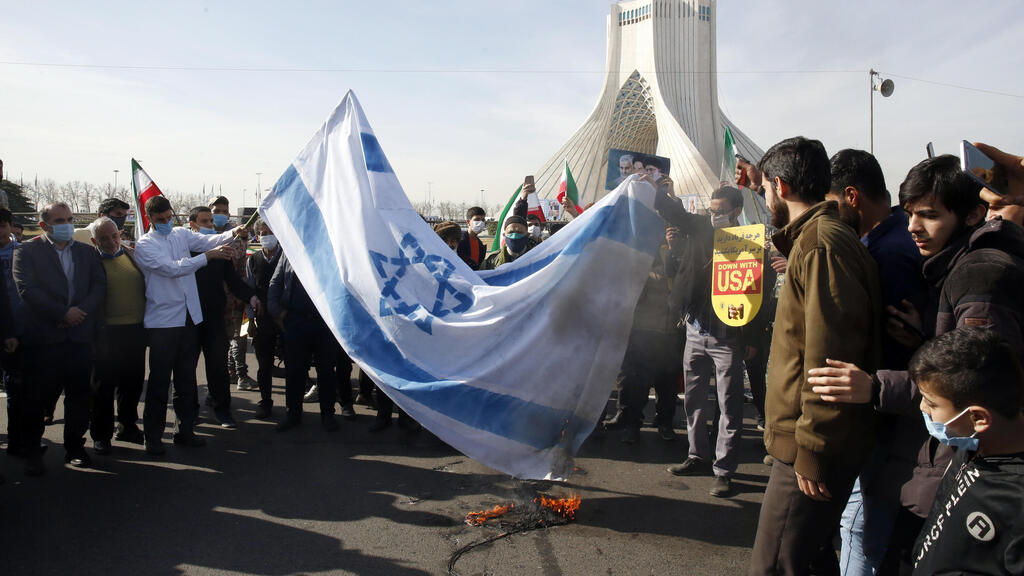

Iranians burning an Israeli flag during the 42 anniversary of the 1979 Islamic revolution
(Photo: EPA)
A group of Iranian dissidents recently published a congratulatory letter to new Prime Minister Naftali Bennett, urging him to support democracy in Iran and to continue Israel’s campaign to stop Tehran’s state-sponsored terrorism. The letter was signed by a number of prominent Iranians in the diaspora and referenced the proposed Cyrus Accords.
“Iran has a history that is known to the whole world — thousands of years of civilization and you know. We are descendants of Cyrus the Great,” added Kian, referring to the legendary Persian king revered in Iran and venerated in the Hebrew Bible for conquering Babylon and liberating the Jews from captivity.
“We are not descendants of Ayatollah Khomeini or anybody like that. These are imposters that came in to cheat and tyrannical figures, dictators who came in and ruined the country. Now, the people of Iran have said a big no to them. How else can they say: we don’t want you anymore? And I think the future is bright between the people of Israel and the people of Iran," Kian said.
The Abraham Accords were unthinkable to most observers and even Gulf residents a year ago. Some in this delegation believe the Cyrus Accords are within reach, as well.
“The freedom-seeking people of Iran want to make sure that the people of Israel know that they don’t support the government of the Islamic Republic, and we listen to them," said Kian.
8 View gallery
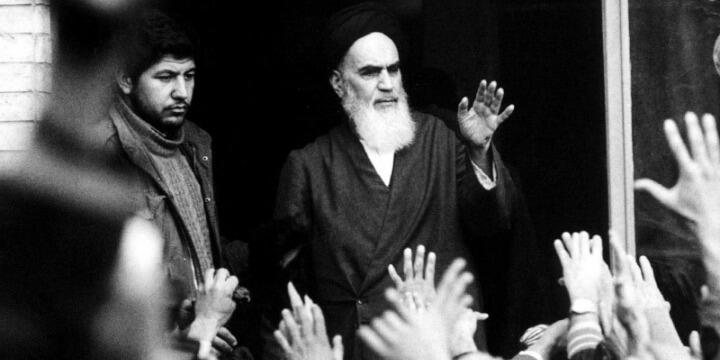

Ayatollah Ruhollah Khomeini speaking to followers in Tehran during the 1979 Islamic revolution
(Photo: Reuters)
"They wanted us to go there and say, look, we’re Iranians but we are not with this regime, we’re not with this government. We have a very strong historical tie. We remember the past to build a better future between the people of Iran and the people of Israel."
"So, really if anyone wants to know exactly why we’re going to Israel it’s to deliver a message to say we have a very glorious history together and we could have a glorious future together, but not with this government,” Kian added.
“Our intention is to honestly, transparently and clearly carry the message of freedom-seeking people of Iran. They want friendship with Israel and they will continue this program."
There are many points we can work on together. Think food, for example. Israel can teach Iranians how to address food issues because Israel has mastered this. Many years ago, an Israeli friend showed me a beautiful peach and said, ‘Look. This peach is grown in a country that has very little land and literally no water. So, we grow these beautiful fruits with technology and knowledge.’ Why can’t those wonderful technological advances be extended also to the Iranian people?” he said.
The delegation is slated to land on Monday for a four-day visit.
Article written by Mike Wagenheim, republished with permission from The Media Line


